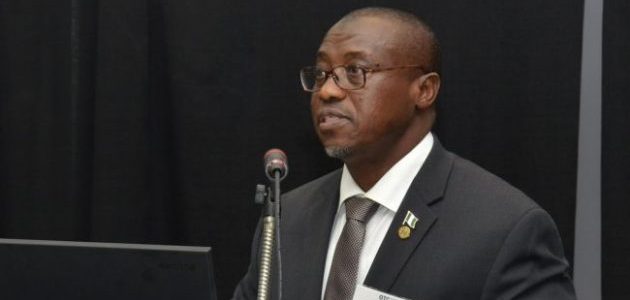Business
NNPC hints on new date to end gas flaring, targets $25bn investment in the sector

The Group Managing Director of Nigeria National Petroleum Corporation (NNPC), Maikanti Baru, on Wednesday stated that the corporation would ensure zero routine flares from all the gas producers within the next 1-2 years.
This is as he also maintained that huge opportunities abound in Nigeria’s Gas Sector, with the country anticipating over $25 billion investments over the next 10 years.
He described the Nigerian Petroleum Industry as the largest and the most vibrant in Sub-Saharan Africa with lots of potentials, especially in the deep water and untapped gas resources.
He revealed that the corporation had put in place policies that would end gas flaring, adding, that already, gas flaring in Nigeria had reduced significantly from 25 per cent to 10 per cent in the last decade.
A statement issued in Abuja by the national oil firm’s spokesperson, Ndu Ughamadu, quoted Baru as stating this when he spoke at different panel sessions at the ongoing 50th Offshore Technology Conference in Houston, United States.
At a panel session on new oil and gas horizons and procurement in Sub-Saharan Africa, Baru said that Nigeria offers distinctive opportunities for investment in exploration, refining, storage, transportation, power, distribution and marketing of petroleum products, adding that the nation’s gas reform is anchored on a strategic framework that is focused on maximum economic impact through gas.
Baru, while speaking on the theme, “Nigeria’s Gas Flare Commercialisation, Prospects and Opportunities”, not only insisted that gas flaring has in the last decade significantly reduced in the country, but that the multi-pronged approach taken by the NNPC was going to ensure a sustainable solution to the historical problem of gas flaring.
According to him, one of the three-point strategy to arrest gas flaring is to ensure the non-submission of Field Development Plans to the Department of Petroleum Resources without a viable and executable gas utilisation plan, a move aimed at ensuring that no new gas flare in current and future projects.
Others strategies include a steady reduction of existing flares through a combination of targeted policy interventions in the gas master plan, and the re-invigoration of the flare penalty through the 2016 Nigeria Gas Flare Commercialisation Programme and through legislation, that is, ban on gas flaring via the recent Flare Gas (Prevention of Waste and Pollution) Regulations, 2018.
READ ALSO: Unemployment, poverty increased under Buhari govt in 2017 – World Bank report
He said that with the development, Nigeria will not only drop from being the second highest gas flaring nation in the world to seventh, but would also record a major milestone in its gas commercialisation prospects.
He said, “Total flares have significantly reduced to current levels of about 800mmscfd, and in the next one to two years, we would have completely ensured zero routine flares from all the gas producers.
“Today, we have completed and inaugurated almost 600 kilometres of new gas pipelines, thereby connecting all existing power plants to permanent gas supply pipelines. We are also currently completing the construction of the strategic 127-kilometre Obiafu-Obrikom-Oben gas pipeline, ‘OB 3’, connecting the eastern supply to the western demand centres,” he said.
RipplesNigeria… without borders, without fears
Click here to join the Ripples Nigeria WhatsApp group for latest updates.
Join the conversation
Support Ripples Nigeria, hold up solutions journalism
Balanced, fearless journalism driven by data comes at huge financial costs.
As a media platform, we hold leadership accountable and will not trade the right to press freedom and free speech for a piece of cake.
If you like what we do, and are ready to uphold solutions journalism, kindly donate to the Ripples Nigeria cause.
Your support would help to ensure that citizens and institutions continue to have free access to credible and reliable information for societal development.
























